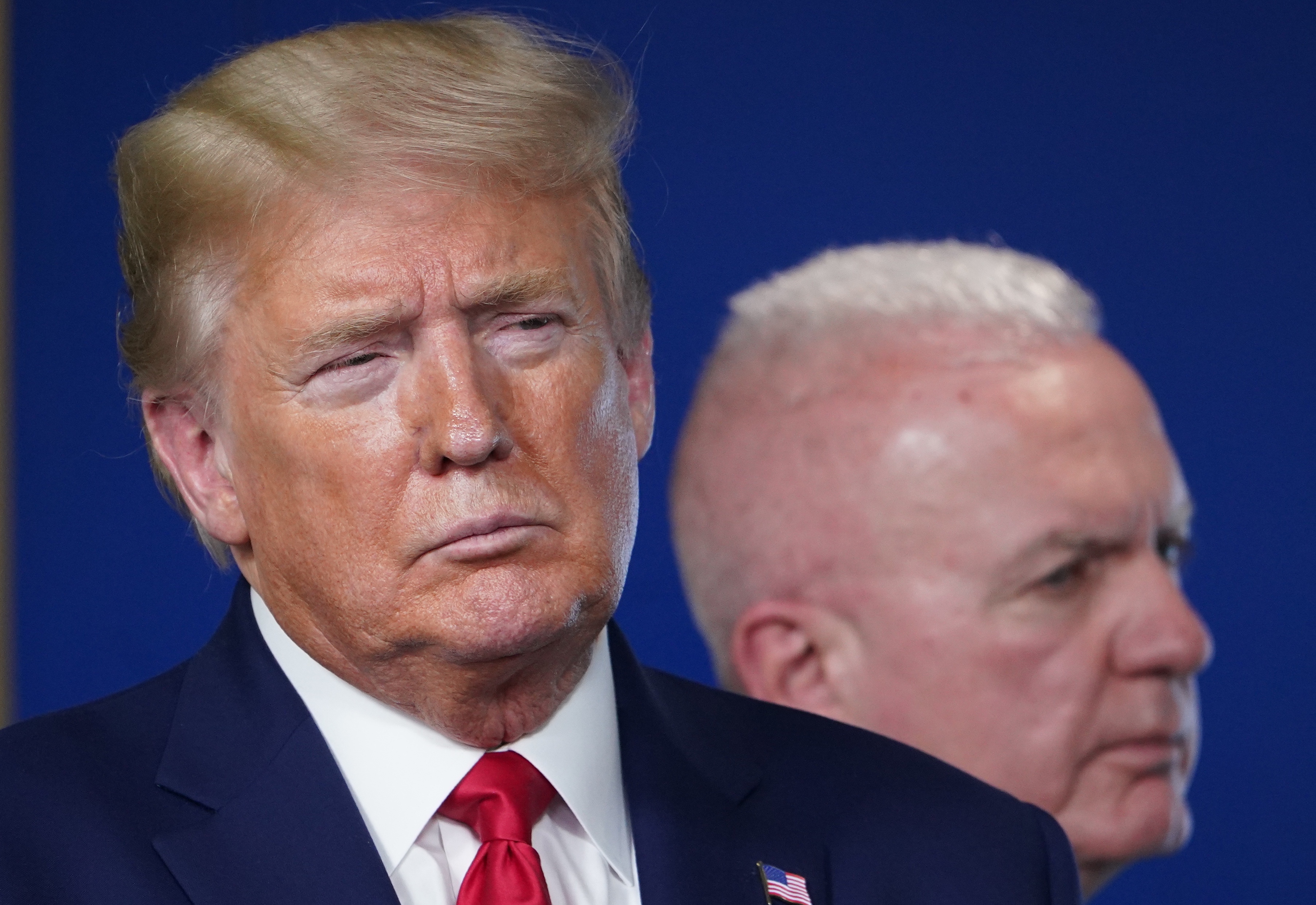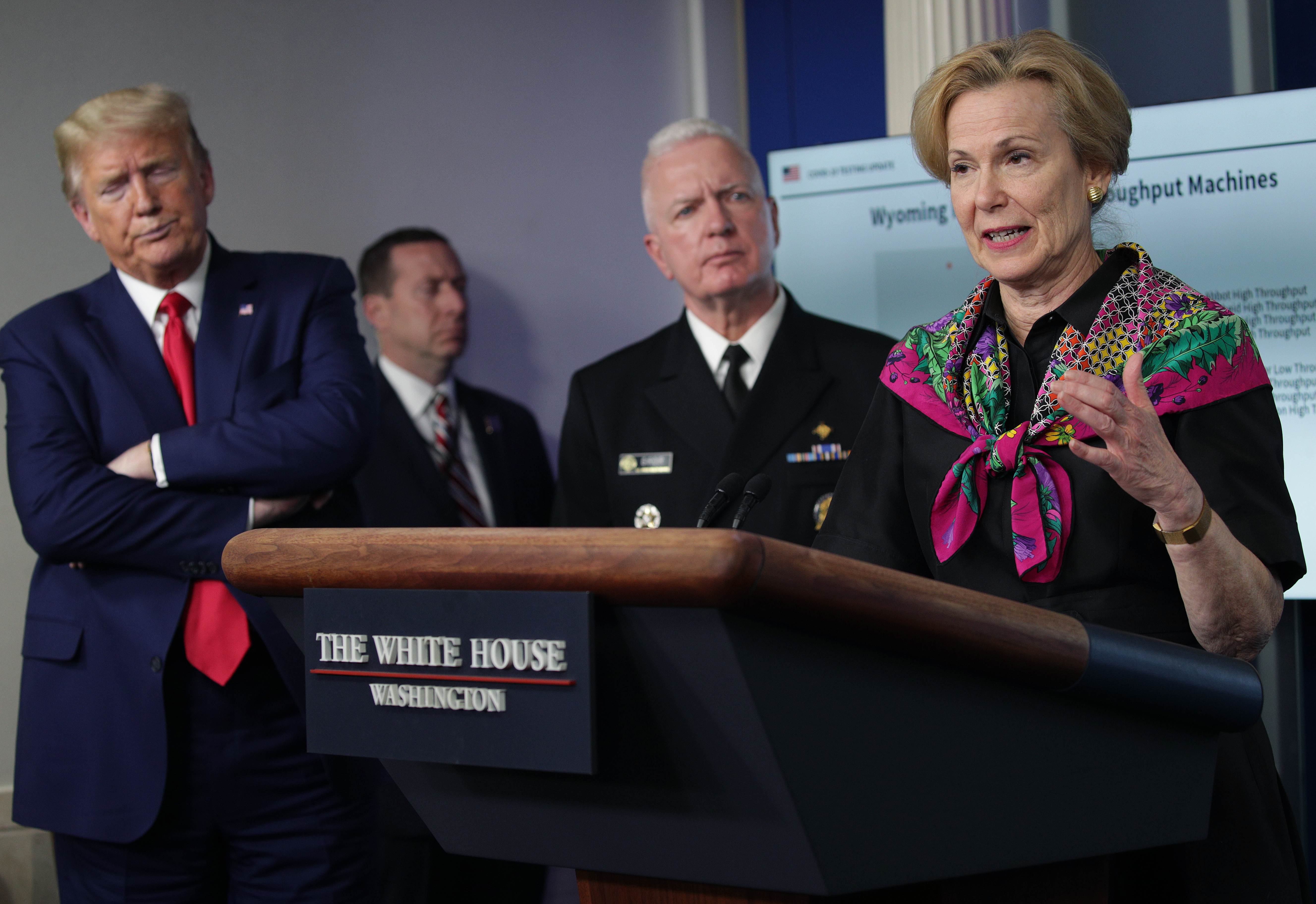The White House says that President Donald Trump plans on Monday to announce $11 billion in funding directed towards helping states expand their coronavirus testing capacities.
Senior administration officials said during a Monday briefing with reporters that the White House task force has held multiple conference calls with every state’s governor and health executives to review their specific testing goals for the month of May, “showing a real partnership between the federal government and the states.”
The $11 billion in funding was originally approved as a part of the CARES act and will be used to send the “exact number of supplies they’re requesting” in terms of specimen collection.

US President Donald Trump (L) and Assistant Secretary for Health admiral Brett Giroir listen as Vice President Mike Pence speaks during the daily briefing on the novel coronavirus Photo by MANDEL NGAN/AFP via Getty Images)
“Testing has always been important, but right now it’s really important as we reopen the economy,” one official explained. “Which is why our testing has ramped up to get to where we need to be.”
“We are in a place now where everyone has what they need,” a second official added. (RELATED: Trump White House Rolls Out New Blueprint For Expanding Coronavirus Testing In Every State)
In particular, the White House is supplementing the specimen collection equipment required to fulfill each state’s testing goals. States with less ambitious goals and lower overall infection rates will receive at least the amount of specimen collection equipment necessary to perform tests on 2% of their respective populations.
On the other hand, hotspot states will receive four times the amount of requested specimen collection equipment with the possibility of further supplementation down the road.
That equipment takes into account tests being processed at public health labs, regional labs, and commercial labs. The White House sent out the first shipments to states last week, officials explained.
Officials also made note of the antibody testing pilot program the federal government is sponsoring in New York City and Detroit. Officials did not answer Daily Caller’s questions about whether the task force has plans to expand the program to other metropolitan areas.

WASHINGTON, DC – APRIL 20: Deborah Brix, White House coronavirus response coordinator speaks as President Donald Trump and during the daily coronavirus briefing at the White House (Photo by Alex Wong/Getty Images)
As of Sunday night, 8.9 million coronavirus tests have been performed in the United States per the White House’s count. 1.9 million of that total were performed in the last week alone. Trump, Vice President Mike Pence, Adm. Brett Giroir, Dr. Deborah Birx, and other members of the coronavirus task force have all stressed the importance of expanding state testing capacities as local economies reopen.
“We want to find an outbreak before it occurs,” Birx told reporters at an off-camera briefing last week. “That’s why you have to actually do sentinel surveillance, not just diagnosis and contact tracing of the people who present with symptoms, and so a lot of our data every day is based on doing that.”


